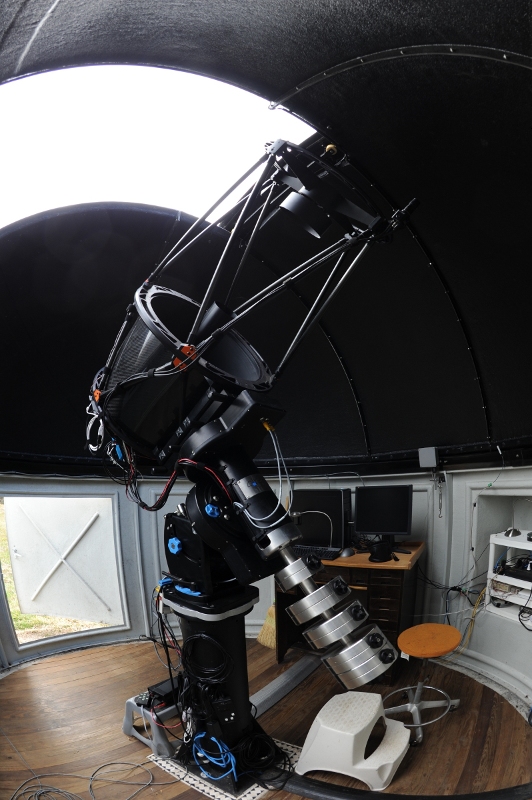

The CDK20 North is seen in November 2012 with its new A200HR mount, Apogee 16M camera, and Optec IFW-3 filter wheel.
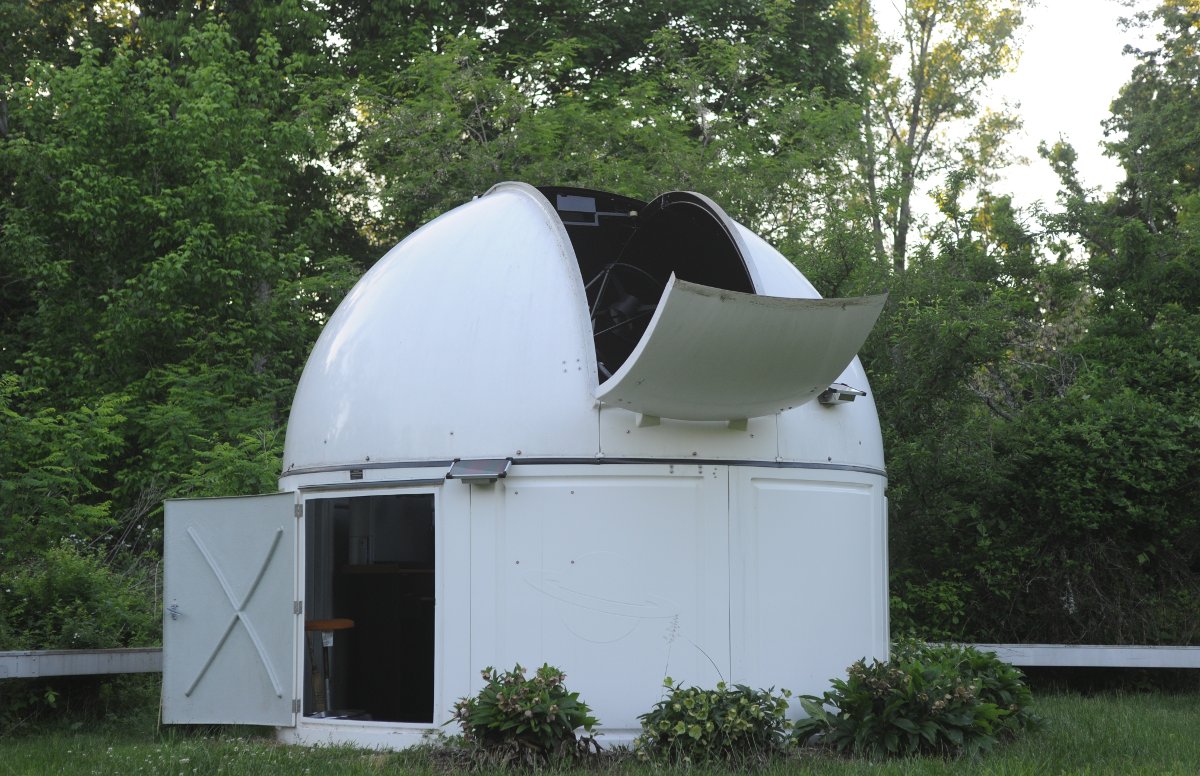
The Sirius dome of the CDK20 North is seen in May 2010, and the telescope is visible through the open shutter. Small solar panels are adequate recharge the batteries that power the dome shutters and rotation.
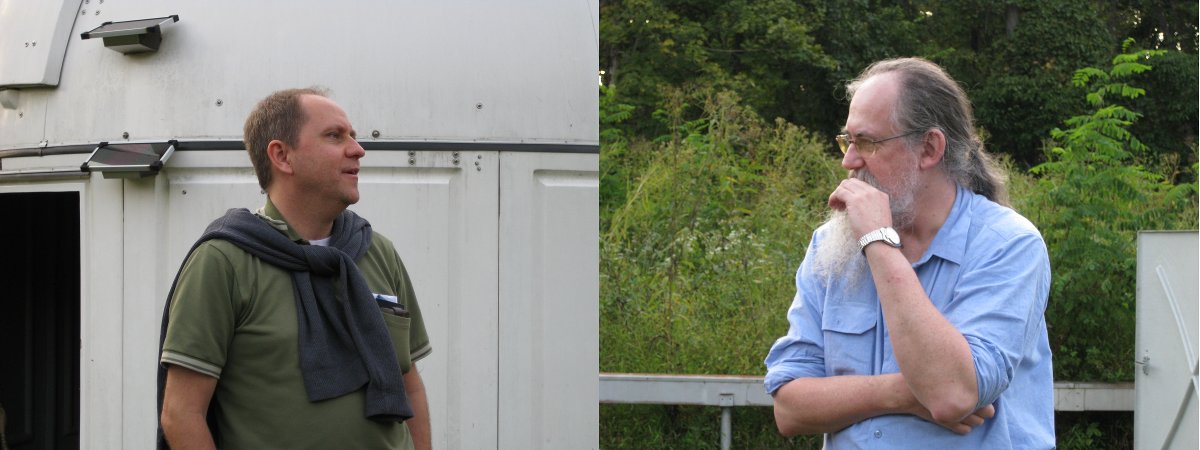
Brad Carter (left) and Rhodes Hart (right) of the University of Southern Queensland visited their northern Shared Skies CDK20 at Moore Observatory in September 2009.
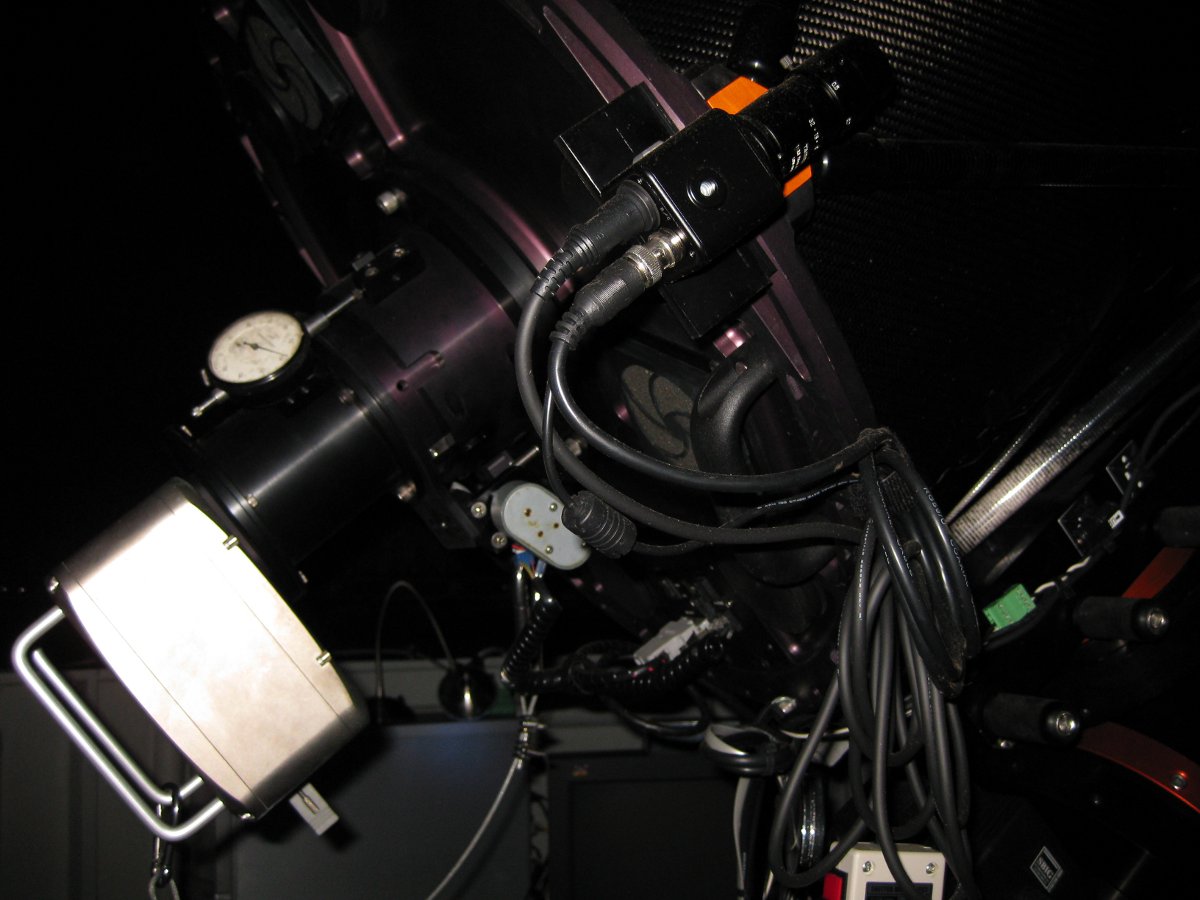
In June 2009 the telescope used an SBIG STL6303 camera. The Wacom (Stellacam III) field camera is also seen here.
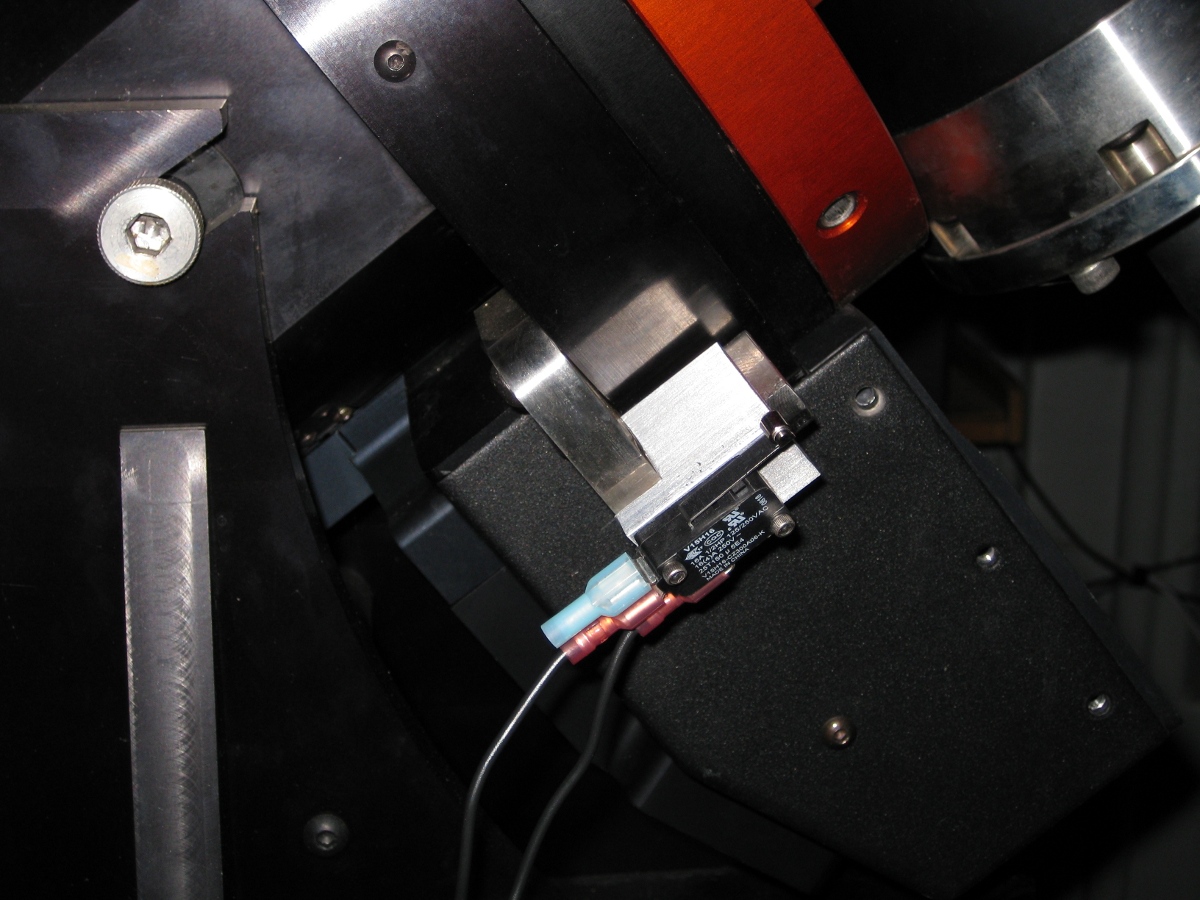
Microswitches were added to limit the range of polar axis rotation on the original mounting. The limit switiches act through a relay to turn off DC power to the mount if its motion would cause mechanical damage.
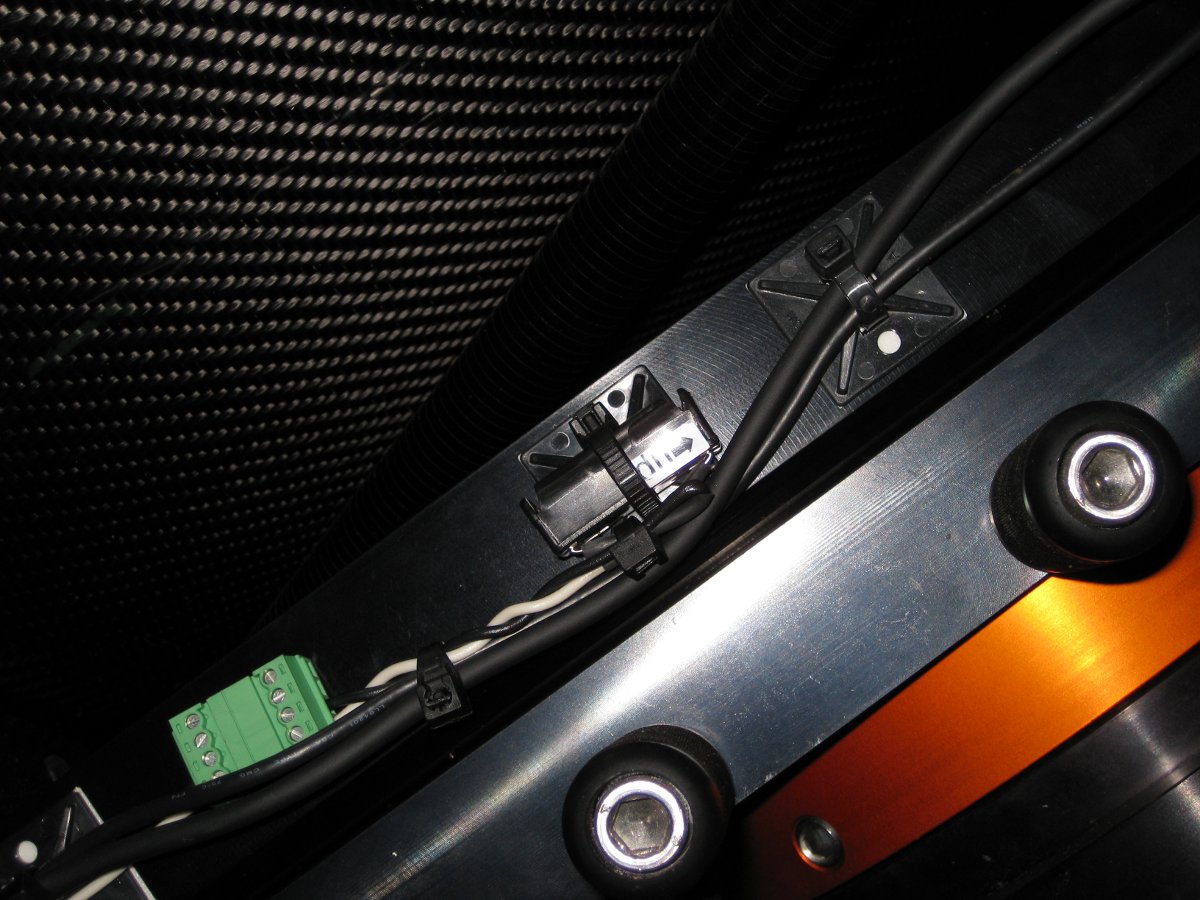
This tilt switch on the flange supporting the optical system opens if the optical axis goes below the horizontal. It is in series with the hour axis limit switches and will safely turn off the mounting if it is accidentally commanded to an unsafe pointing.
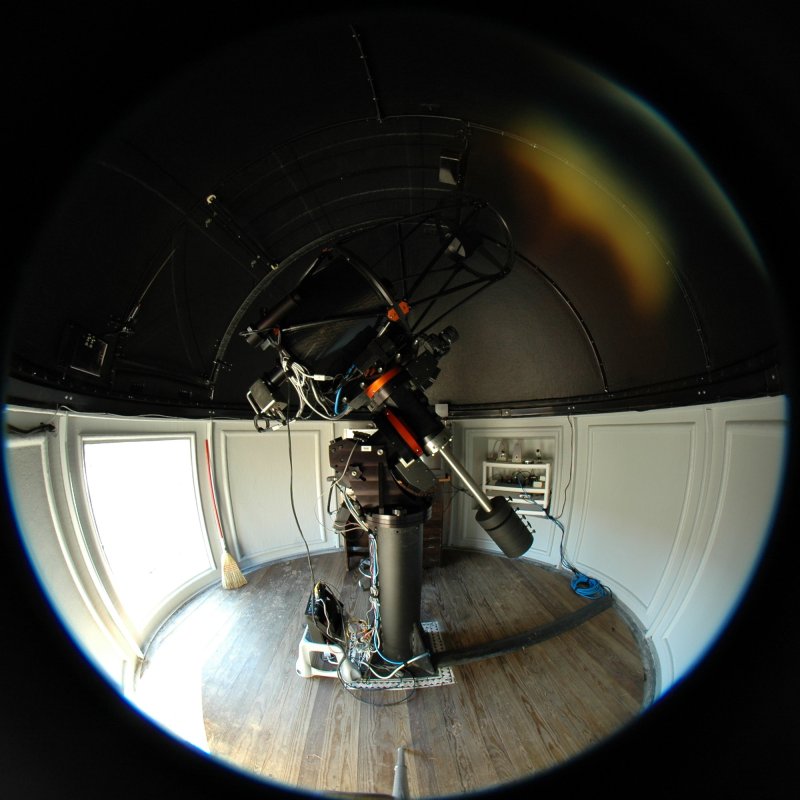
The CDK20 at Moore Observatory as it was configured in May 2007. At that time it used an SBIG STL6303 camera and an SBIG STV autoguider. A Nikon D200 camera was mounted under the optical tube for wide field of view color imaging. The decorative tile border is on top of the concrete pier footer. The wood floor is isolated from the pier and the walls, and moderates thermal effects in the dome.
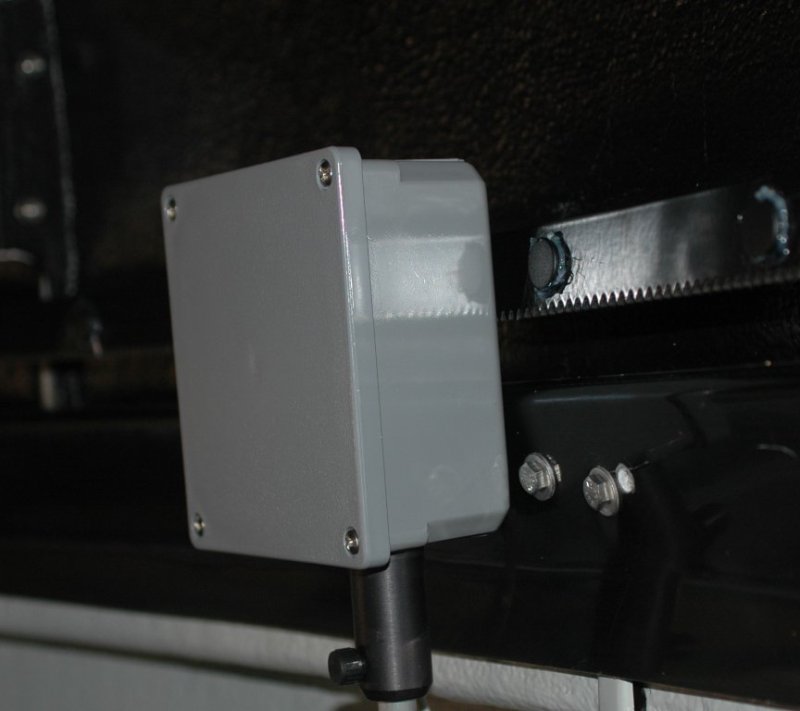
The Sirius dome enclosing the CDK20 north uses an RFID tag encoder to track dome rotation. Disk tags are approximately 4 degrees apart. An encoder head in the plastic box and is located so that it senses only one tag at a time. It has a USB interface to the telescope control computer.
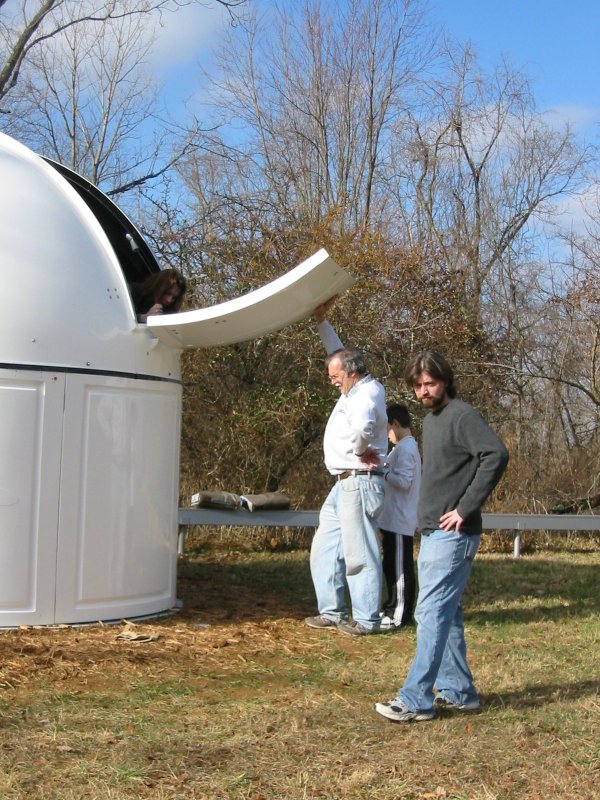
The dome and side walls were placed on a concrete footer in January 2006. Scott Miller and Jeff Hay lended a hand.

The footer for the dome and telescope and the floor of the dome were designed and built by Helen Kielkopf. She and Andy Newton poured the concrete in November 2005.
